When it comes to developing effective marketing strategies, understanding your target audience is crucial. One effective way to do this is through market research using focus groups. In this comprehensive guide, we’ll delve into the nitty-gritty of utilizing marketing focus groups to gain a deeper understanding of your consumers, and how to get the most out of them.
Understanding Marketing Focus Groups
Definition and Purpose of Focus Groups
Put simply, a marketing focus group is a gathering of prospective customers who participate in a structured discussion led by a moderator to gain insight into their behavior, needs, and opinions. The main purpose of focus groups is to provide qualitative data that can be used to inform marketing decisions.
Focus groups are a valuable tool for businesses to better understand their target audience. By gathering a group of individuals who represent the target market, businesses can gain valuable insights into what their customers are thinking and feeling. This information can then be used to inform marketing decisions and develop more effective campaigns.
During a focus group, a moderator will guide the discussion and ask participants a series of questions related to the product or service being researched. This can include questions about their current behaviors and attitudes towards the product, as well as their needs and preferences.
One of the key benefits of focus groups is that they provide qualitative data, which can be more in-depth and nuanced than quantitative data. This can help businesses gain a deeper understanding of their customers and their needs, which can lead to more effective marketing strategies.
Types of Marketing Focus Groups
Focus groups come in different forms, such as in-person, telephone, and online focus groups. In-person focus groups offer the advantage of non-verbal cues, while telephone focus groups offer anonymity, and online focus groups cater to busy participants who can join from anywhere. Choose the mode that best suits your research goals and budget.
In-person focus groups can be particularly effective for products that require physical interaction, such as food or clothing. This allows participants to touch and feel the product, which can provide valuable feedback. Telephone and online focus groups, on the other hand, can be more convenient and cost-effective, as they eliminate the need for travel and can be conducted from anywhere.
It’s important to consider the advantages and disadvantages of each type of focus group when deciding which one to use. For example, in-person focus groups may be more expensive due to the cost of renting a space and providing refreshments, while online focus groups may be subject to technical difficulties.
Benefits and Limitations of Focus Groups
Focus groups offer several benefits, including the opportunity to hear firsthand what your consumers think and feel. They also foster discussion and provide rich qualitative data on attitudes, beliefs, and perceptions. However, they can be time-consuming and expensive, and participants may not always accurately represent your target audience.
One of the biggest benefits of focus groups is that they allow businesses to gain a deeper understanding of their customers. By hearing directly from the target market, businesses can gain valuable insights into what their customers are thinking and feeling, which can help inform marketing decisions and product development.
However, focus groups also have their limitations. For example, they can be time-consuming and expensive to conduct, especially if they require travel or the rental of a space. Additionally, participants may not always accurately represent the target audience, which can lead to skewed results.
Despite these limitations, focus groups remain a valuable tool for businesses looking to gain a deeper understanding of their customers and develop more effective marketing strategies.
Planning and Designing a Marketing Focus Group
Setting Clear Objectives
Before conducting a focus group, it’s crucial to establish clear objectives and research questions. What do you want to learn, and how will you use the insights to inform your marketing strategy? Write a research plan that outlines the objectives, the number of focus groups, the target audience, and the data collection method.
Selecting the Right Participants
Selecting the right participants is crucial to ensure that you get accurate and relevant data. Choose participants who fit your target demographics and are likely to have an interest in your product or service. Consider factors such as age, gender, income, and geographic location. It’s essential to have a diverse group to get a range of perspectives.
Choosing a Skilled Moderator
A skilled moderator is critical to the success of a focus group. They should create a comfortable and safe environment for participants, encourage open discussion, and keep the conversation on track. Look for someone with experience moderating focus groups or consider hiring a professional.
Preparing the Discussion Guide
The discussion guide is the backbone of your focus group. It should be structured to cover the research questions, encourage meaningful discussion, and provide clarity to participants. Consider having open-ended questions that encourage participation and follow-up questions that allow you to probe deeper into a topic.
Conducting the Marketing Focus Group
Creating a Comfortable Environment
The environment in which the focus group is conducted can significantly impact the outcomes. Choose a comfortable and quiet space that provides privacy, such as a conference room. Provide refreshments and ensure that participants are comfortable and well-rested.
Establishing Ground Rules
Establishing ground rules at the beginning of the focus group can prevent misunderstandings and encourage a respectful discussion. Set the tone by ensuring all participants respect each other’s opinions, keep the discussion on topic, and avoid interrupting others.
Encouraging Open and Honest Discussion
The moderator should encourage open and honest discussion, highlighting that all opinions are welcome, and there are no right or wrong answers. Make participants feel valued and respected by acknowledging their views, listening actively, and asking follow-up questions.
Managing Group Dynamics
Managing group dynamics is vital to keep the discussion flowing, prevent dominant participants from taking over, and ensure that everyone has a chance to speak. The moderator should redirect conversation if it goes off-topic and encourage quieter participants to speak up. They should also monitor the general mood of the group and adjust their approach if necessary.
Analyzing and Interpreting Focus Group Data
Transcribing and Organizing Data
Transcribing and organizing the data collected from the focus group is crucial to interpret the results meaningfully accurately. Consider transcribing the data in real-time or recording the session and transcribing it later. Organize the results so the data can be easily analyzed.
Identifying Key Themes and Patterns
Analyzing the data collected in the focus group involves identifying key themes and patterns. Look for patterns in the responses and group the data into themes. Identify insights, unique perspectives and compare them with existing market research to develop a more complete understanding of your consumers.
Assessing the Quality of the Data
It’s essential to assess the quality of the data collected in the focus group carefully. Consider factors such as the consistency of the responses, the depth of the answers, and how representative the group was compared to your target audience.
Drawing Conclusions and Recommendations
The final step is to draw conclusions and make recommendations based on the data collected in the focus group. Consider all the insights gathered, review them with your research objectives, and determine how they can impact your marketing strategies.
Wrapping Up
In conclusion, marketing focus groups are a valuable method to gain meaningful insights into your target audience. By properly planning, designing, and conducting the groups, you can get relevant qualitative data, identify trends, and make informed marketing decisions. Don’t forget to carefully analyze and interpret the results and use them to develop effective marketing strategies.






